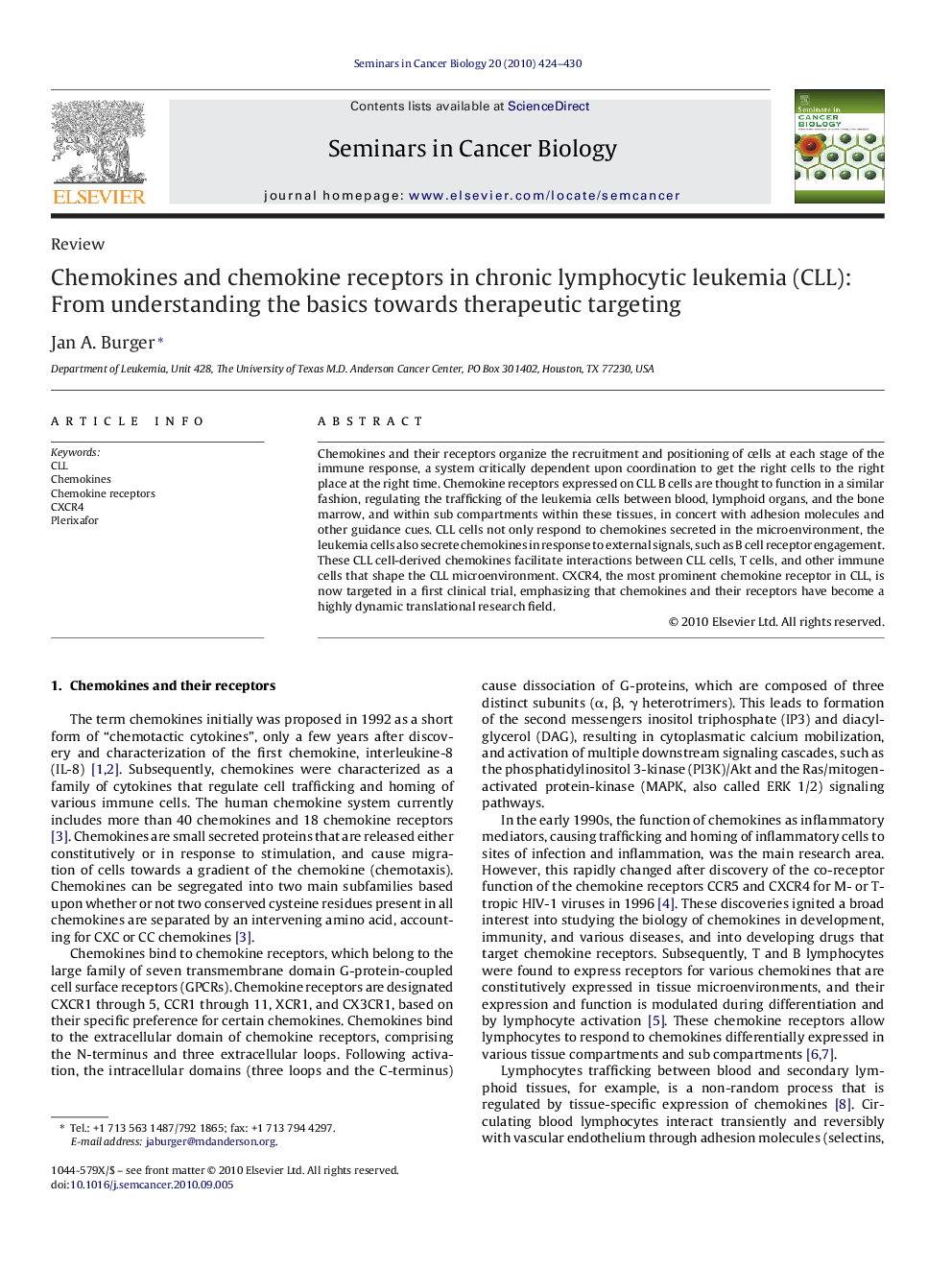| Article ID | Journal | Published Year | Pages | File Type |
|---|---|---|---|---|
| 2023869 | Seminars in Cancer Biology | 2010 | 7 Pages |
Chemokines and their receptors organize the recruitment and positioning of cells at each stage of the immune response, a system critically dependent upon coordination to get the right cells to the right place at the right time. Chemokine receptors expressed on CLL B cells are thought to function in a similar fashion, regulating the trafficking of the leukemia cells between blood, lymphoid organs, and the bone marrow, and within sub compartments within these tissues, in concert with adhesion molecules and other guidance cues. CLL cells not only respond to chemokines secreted in the microenvironment, the leukemia cells also secrete chemokines in response to external signals, such as B cell receptor engagement. These CLL cell-derived chemokines facilitate interactions between CLL cells, T cells, and other immune cells that shape the CLL microenvironment. CXCR4, the most prominent chemokine receptor in CLL, is now targeted in a first clinical trial, emphasizing that chemokines and their receptors have become a highly dynamic translational research field.
